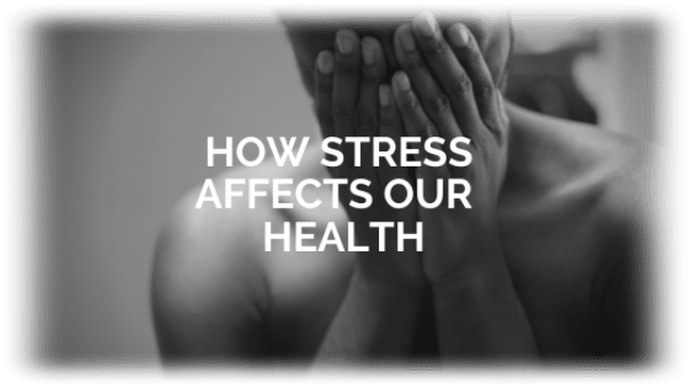|
We all experience varying degrees of stress throughout our lives – it’s a necessary and non-negotiable part of human existence. Problem is that in our modern day lives, we're aggressively bombarded with stress-evoking stimuli; our morning coffee, the health of a family member, the excessive workload at our jobs. Stress never really leaves us. This is what is known as a state of chronic stress. And when when you're living in chronic stress for extended periods of time, things rarely end too well. The World Health Organisation has classified stress as 'The Health Epidemic of the 21st Century'. Not cardiovascular disease, not obesity, not diabetes, stress. Why? Well, although you may not realise it, stress is often at the root of all three of these conditions. In this piece I'll outline how. First, a tiny bit of endocrinology. CortisolThe stress hormone. It plays a central role in our survival & well-being. When stressed the body responds by going into ‘fight-or-flight mode’. Adrenaline is released, increasing our heart rate, breathing rate, and preparing the muscles for action. This is designed to help prepare us for threats in our environment. Part of the fight or flight process is the production of Cortisol. It works to suppress all functions that aren’t essential in that moment, allowing your body to fully focus on the threat at hand. This fight-or-flight response is great for dealing with short-term threats. However, if you're in a state of stress day-in, day-out, (chronic stress), that’s when problems start to arise. Cortisol is being produced in excessive amounts, casuing stimulatory & inhibitory effects on other hormones. When this happens over a long period of time, our physiology starts to become affected. Effects of chronic stressThe effects of chronic stress are so wide and varied that to go over all of them would have you reading this all day. Instead, I'll focus on three areas: cardiovascular health, fat storage, & immune health. Cardiovascular Health As mentioned earlier, cortisol production effects our respiratory and cardiovascular systems (it elevates our breathing and heart rate). This is an attempt by the body to distribute oxygen-rich blood to the muscles to prepare them for action. Resultantly, your heart is demanded to work harder for longer, raising your blood pressure and placing you at real risk of strokes or heart attacks. Fat Storage Increased cortisol levels have been shown to positively correlate with the deposition of abdominal fat deposits. Here's why. Cortisol triggers your liver to begin producing & pushing out glucose into the bloodstream. This is essentially allowing you to have the energy to react to the supposed stressful stimuli. Cortisol also inhibits the action of insulin, which is responsible for maintaining blood sugar at a healthy level. It does this by enabling glucose to enter muscle, liver & fat cells to be a form of stored energy. When this doesn’t happen, the cells are not receiving the energy they desperately need and want, causing them to signal to the brain that they need more food. You eat more. The blood glucose levels rise & remain high. Over time, this actually causes insulin production to spike. This is bad news; insulin begins to remove the glucose from the bloodstream, storing it as fat. You gain weight, and the cycle continues, because the stressful stimuli continue to be present. Immune Health With chronic stress, immune function is severely inhibited. Stress hormones weaken your immune system and limit your body’s response to foreign invaders and threats. Therefore, when under chronic stress you are significantly more susceptible to viral illnesses and colds. Given the current ongoing health issues regarding Coronavirus, this is particularly relevant. And Breathe..These are just a few of the ways in which stress has detrimental health effects without going into too much depth, but hopefully you can get a sense of the potential long-term implications of chronic stress. There are always going to be stressors in life. Sometimes there's no avoiding certain things that overwhelm us or that make us feel anxious. Being able to effectively manage those situations is really important, fortunately there's plenty of effective ways of doing so, that although don't directly solve the situation itself, allow us to deal and cope with it more competently. Positive actions you can intake can be as straightforward as limiting caffeine & alcohol intake, getting better sleep, improving your diet and doing more exercise, talking with friends & family. If you want to take it further, you can try journaling (a personal favourite), spending time in nature, deep breathing exercise, meditation - all are great habits worth incorporating into your lifestyle to help decrease stress levels and ultimately improve your well-being. If you'd like to learn more about how to effectively manage your stress levels & ultimately improve your health through lifestyle adaptation, be sure to access your free e-book: 5 Keys to Weight Loss in Lockdown. |
Author
Christian Lawal Personal Training.
Personal training in Tunbridge Wells, Tonbridge & Sevenoaks. Archives
January 2024
|




